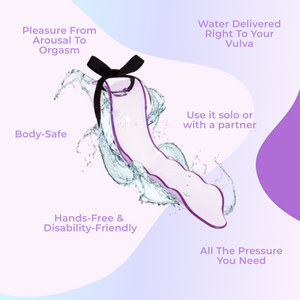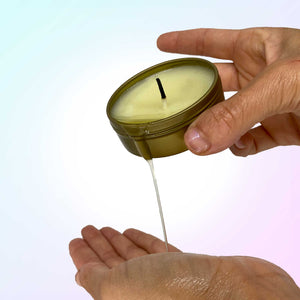This is one of the questions that many people ask themselves, especially those who are sexually active. What STDs can you get even if you wear a condom?
This article looks at exactly what happens if you get an STD through sex and whether or not using a condom while having sex would make you more likely to get an STD.
The first thing you should know is that although a latex condom may seem safer than other types, it is always possible to break or tear during intercourse. Unprotected sexual contact may transmit the infection, which is more common in women. It is possible to contract herpes, as just one example, from having sex with an infected person, so testing is essential.
Another consideration is that condoms sometimes break when they are not properly used. Many condoms, especially those thicker and that use a thick layer of latex foam, tend to wear out easier. If you wear a thin condom or a condom that is not the right thickness, it is more likely to break. This can put you at risk for STDs because your skin will become irritated, or you may tear the condom before it has been placed correctly. This means that you can spread the disease without even knowing it. That is why you need to be very careful about what type of condom you use.
Can you get an STD if you wear a condom every time you have sex with a partner?
The short answer is, of course, yes. Many factors can influence the possibility of you getting an STD while being covered by a condom, such as the kind of condom and class of STD you have. Condoms do not protect you from all STDs, just some. This is why it is important always to use a new condom every time you have sexual intercourse, even if you only plan to have one sex act.
Unfortunately, no condom can provide absolute protection against all STDs. Some STDs can't be prevented by anything other than a monogamous relationship, while others can be caught through any unprotected sexual contact. Some STDs can't be transmitted through anal or vaginal sex at all; they can only be transmitted through blood, breast milk, semen, and vaginal fluids. And, of course, the most commonly known sexually transmitted diseases, such as herpes and genital herpes, can spread when an infected person has sex with a non-infected person.
A latex condom can provide more protection than plain ones when an infected person has sex. When a man has an erection, the tip of his penis rubs against the condom, allowing the spermicide in it to kill off any unwanted bacteria before it gets to the woman's vagina and cervix. A condom can also help prevent the transmission of some types of STDs.
Can you get an STD if you wear a new condom regularly?
Although many STDs can be transmitted through different means, the most commonly known transmissions occur through anal, vaginal, or oral sex. This means that condoms can protect you from getting STDs.
Can you get an STD if you only have one or two incidents of unprotected sex without using condoms?
The answer is yes. Any skin-to-skin contact can transmit viruses, including any part of the body that comes into contact with the infected area, such as the mouth, breast, genitals, and anus.
In addition to anal herpes, genital herpes can also spread through skin-to-skin contact.
- Genital herpes can be spread by direct contact with an infected person's genital area; this includes touching areas where an open sore or ulcer forms.
- Anal herpes can be spread by having sex with an infected person whose genital area is uncovered, such as if a woman exposes her genital area during oral sex. If you engage in multiple types of unprotected sexual intercourse (oral, anal, and genital) and don't use condoms, then you are putting yourself at risk of getting STDs
- Not all sexually transmitted diseases can be transmitted through skin-to-skin contact. Genital warts and herpes are caused by the same virus, the human papillomavirus. These diseases can be treated with medications but do not prevent them from recurring. Some people may have an immune system that is too weak or too inefficient to fight off the virus that causes these STDs. If you are in this group of people, using condoms can lower your chances of contracting these diseases.
What are you able to do to improve condom efficacy?
Learn how to use a condom correctly, and you can rest assured that you’re doing everything you can to protect yourself.
- Make sure they are correctly stored.
Condoms should be kept in a cool and dry place.
- Verify the expiration date
Condom’s expiration dates are more than decoration, and they must be adhered to.
- Open the packaging with your fingers.
Don't attempt to open the condom using your teeth. Doing so could cause a perceptible or imperceptible tear. Be safe and use your fingers.
- Use the condom at the right moment.
This condom must be used before any brushing or bumping begins. That means protecting yourself the moment you move close to one another. Even touching genitals can transmit some STDs.
How to use a condom to protect yourself from STDs
- If you or your partner alter the type of sexual activity you engage in, such as oral, vaginal, or anal sex, use a new condom. Before you make any contact with the genital area, place the male condom on the penis, with the rolled side up.
- Condoms for males: If your condom does not have a reservoir tip, pinch it so that the semen doesn't collect. Next, unfold the condom onto your erect penis. To ensure no semen leakage, hold the condom's tip and gently pull it out.
- Before disposing of the condom, wrap it in a piece of tissue.
- You can stop and withdraw if your condom breaks during sexual activity.
- Water-based lubricants are better than oil-based ones, which can cause the latex to crack and weaken.
What STDs aren't curable?
These are the four incurable STDs:
- Hepatitis B.
- Herpes.
- HIV.
- Human papillomavirus, (HPV)
If I used a condom, do I still need to have an STI test?
You should be tested if you've ever been exposed to unprotected sexual activity or experienced sex problems such as a burst condom. Even though you may not be experiencing any symptoms, it is worth getting checked even if you have had this happen before.
Is it possible to get an STD after a single night?
The likelihood of contracting an STD after a single one-night stand depends on the type of sex. There is around a 30 percent chance of contracting an STD in one unprotected encounter from a partner with syphilis or gonorrhea.
Is it possible to sleep with someone who has an STD but not get it?
It is common to believe that if you share a bed with someone who has an STD, it will result in the same STD. This is not true. If you use a condom, you can protect yourself.
How easy is it to get an STD?
Surprisingly easy. An STD can be transmitted sexually via oral, vaginal, or anal methods. A male can infect a female after just one episode with an infected partner, and the male's chance of infecting a female is 20%.
More Articles You Might Love

Get To Know Your Vulva




















